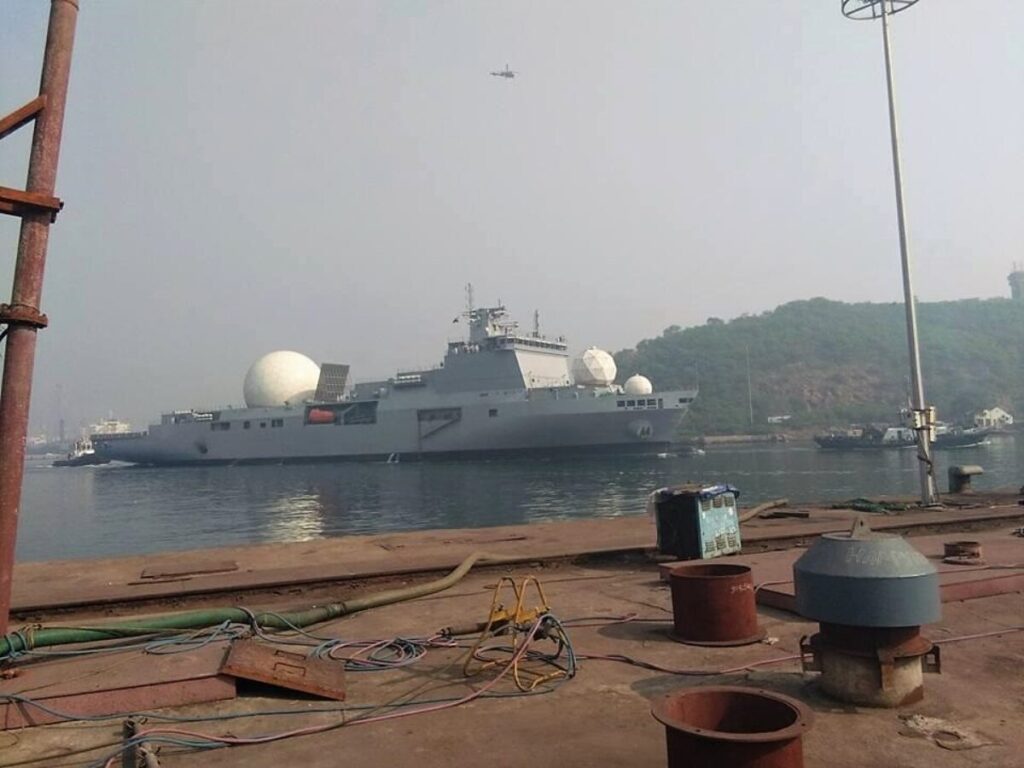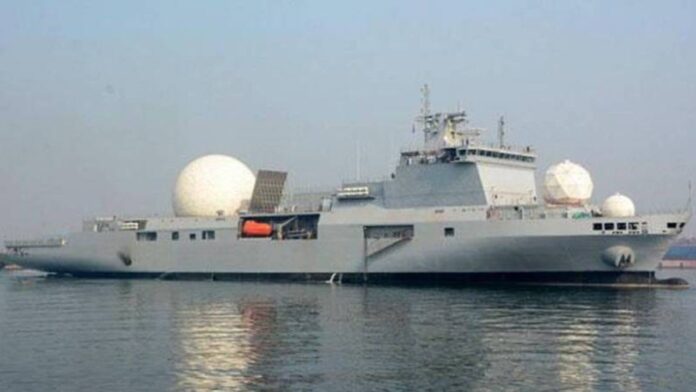India’s first missile tracking and ocean surveillance ship, INS Dhruv, was officially commissioned on September 10 at the state-owned Hindustan Shipyard Limited (HSL) in Visakhapatnam.
With the induction of INS Dhruv, India joins a private group of countries that have such specialized vessels, including the United States, the United Kingdom, Russia, China, and France.
Sea trials concluded in 2019, and the 15,000-ton ship entered service last year without fanfare. Shephard understands that the formal announcement of the vessel’s commissioning was delayed due to internal conflict between the Defence Research and Development Organization (DRDO) and the Indian Navy (IN) over who would command the vessel.

About INS Dhruv:
The INS Dhruv is expected to provide early warning of attacks by ballistic missiles launched from Pakistan and China.
It has a length of 175 metres, a beam of 22 metres, a draught of six metres, and a top speed of 21 knots. It also has a draught of six metres. It is powered by two imported combined diesel and diesel (CODAD) configuration engines with a combined output of 9,000 kilowatts and three 1200 kilowatt auxiliary generators.
The vessel, which weighs 10,00 tonnes, is equipped with long-range radars, dome-shaped tracking antennae, and advanced electronics.
Furthermore, the INS Dhruv is outfitted with the capability of mapping ocean beds in order to conduct research and detect enemy submarines. Active scanned array radar (AESA), developed by the Defence Research and Development Organization (DRDO), is mounted on the ship and can scan and monitor spy satellites watching over India as well as missile tests taking place throughout the region.
Check out Naval Library App to find out the specifications of INS Dhruv.





